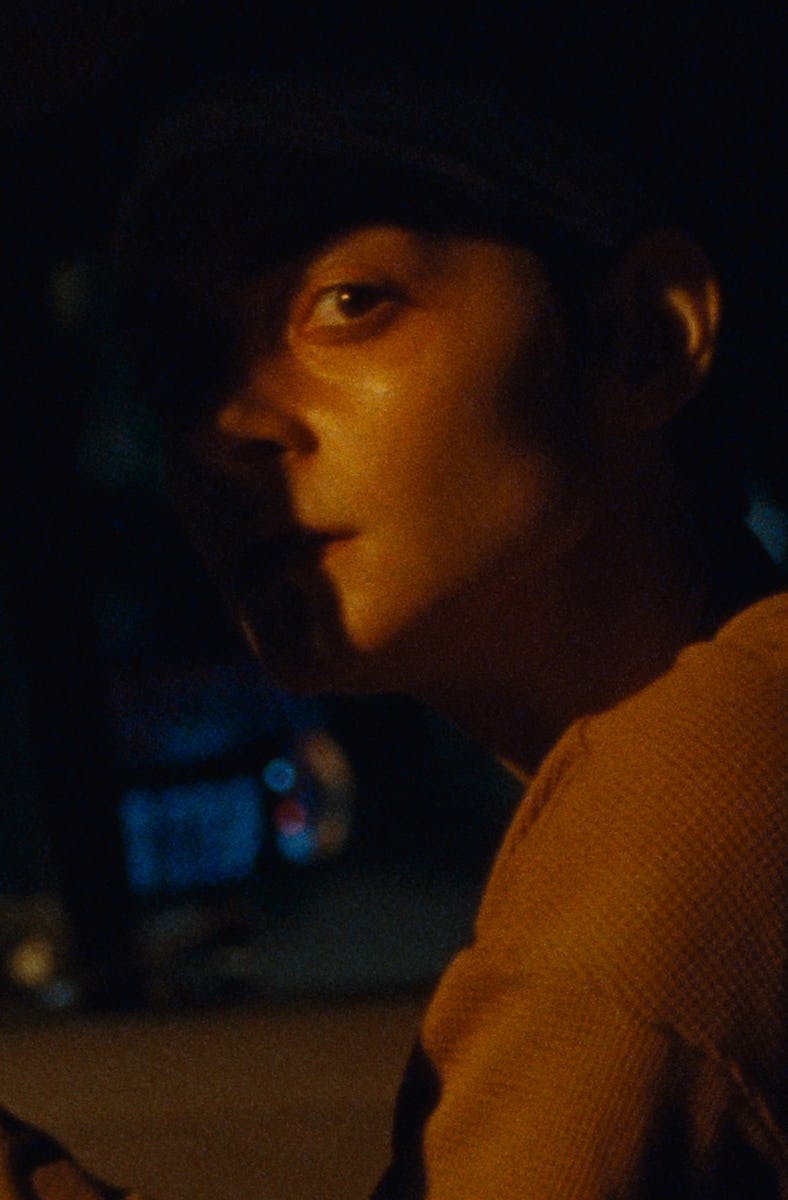Frankie (Ariella Mastroianni) has a condition. She suffers from a brain disorder called dyschronometria, which causes her to lose big chunks of time — an episode can happen anytime during the day, causing her to black out and wake minutes or hours later. She combats this by watching people in the apartment building across from her, making up stories about their lives, or by creating cassette tapes that she listens to constantly, to make sure she doesn’t zone out and suffer an episode. “Focus” is the word she constantly tells herself, grimly narrating even just her every movement, to make sure she’s present in the here and now.
But it doesn’t quite work. Frankie can’t hold down a job because her attention span is so poor, she’s been forced to leave her daughter with her mother-in-law, and her doctor tells her that she’s only got a few months left before her condition has completely deteriorated. And then there’s one troubling incident that she thinks she might have witnessed through an apartment window — a shocking bit of brutality that sends her down a dark and dangerous rabbit hole.
With the mesmerizing and stylish noir thriller Glazer, writer-director Ryan J. Sloan’s feature debut, it’s hard not to think of Christopher Nolan’s twisty 2000 masterpiece, Memento, with which Glazer shares more than a few similarities. It’s a neo-noir in which its protagonist suffers from a debilitating brain condition that makes the mystery they’re trying to solve even more difficult to parse. But while Glazer is not quite as tightly constructed as Memento, it makes up for it in surreal style.
Glazer unfolds at a slow, slow burn, with Frankie moving about her day with a glazed look in her eyes — eyes that Sloan frequently keeps a tight close-up on. It embeds us deeper in Frankie’s lonely, confusing world, in which her real life seems to become increasingly ephemeral, while her past starts to feel more violently real. She’s plagued by her non-memory of her husband’s suicide, which left her grief-stricken and without anchor. But she’s even further plagued by the nagging feeling that it may not have been a suicide.
As disorienting as Frankie’s day-to-day experience is, Mastroianni’s voiceover provides a familiar foundation for the audience to grab onto. It’s a grim, gravelly voiceover right out of a noir, but Mastrionni injects it with a bit of desperation — the voiceovers are her reminders to herself to keep herself present. But her meditative self-talk becomes the unlikely driver of a mystery that Frankie finds herself involved in. Much like Guy Pearce’s polaroids and tattoos in Memento, Frankie’s cassette tapes become the trail of clues by which she pieces together the troubling incident she witnesses through the window of the apartment across from her — of a woman being bludgeoned by… someone. She remembers it a little differently every time, and with each flash of this strange scene, Gazer picks away at the thread of reality.
In a way, Gazer feels like an alternate version of the melodramatic Hitchcockian send-ups post-Gone Girl — instead of the string of soapy chick-lit like Girl on the Train and its ilk, Gazer presents a more stripped-down, spare version of contemporary Rear Window riffs. Sloan has a strong enough vision that Gazer could’ve continued down the path of straightforward noir, but midway through, it takes a turn for the Lynchian in a series of nightmarish sequences that are admirable in their ambition, if slightly out of place. They mostly serve to disorient the viewer even further, though this threatens to spin an already unmoored film out of orbit.
But thanks to Mastroianni’s fierce performance as a woman fighting against her own brain, Gazer manages to reorient itself enough for its narrative and emotional climaxes to land. She handily carries the film, showing a glimmer of brightness in her dull eyes, or adding an extra layer of grit to her monotonous voiceovers to show that there’s still a living, breathing person beneath the condition. And Gazer, as visually stunning and trippy as it gets, needs that little bit of life beneath its style.
